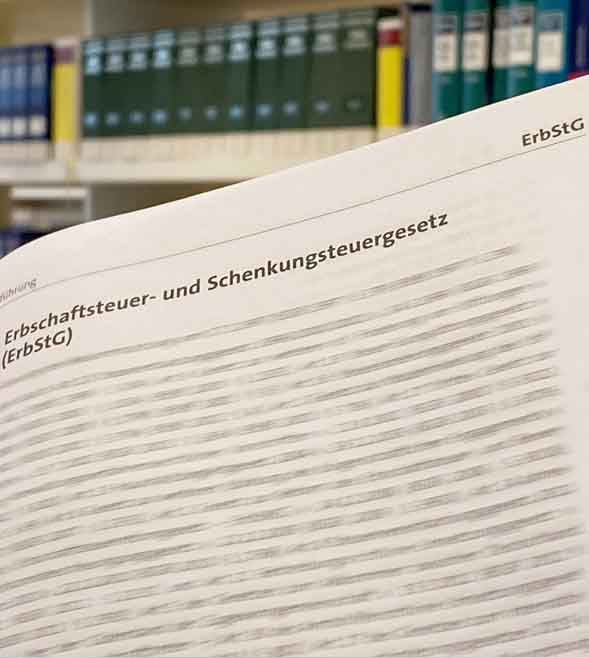-
Digital and Analytics
We have developed distinctive capabilities in digital advisory and data analytics that are key to the success of dynamic organisations.
-
Business Consulting
Our business consulting services help organisations improve operational performance and productivity throughout the growth life cycle.
-
Corporate Finance & Restructuring
We combine our insights and experience to provide a comprehensive range of advisory and corporate finance and restructuring solutions.
-
Internal Audit
Our internal audit service is designed to provide both assurance and consulting assistance on the adequacy and effectiveness of an organisation’s system of internal controls.
-
Business Risk Services
Our service is focused on enabling broader risk coverage and proactive management of risks for the achievement of organisational strategy.
-
Business Process Solutions
We work with a multitude of organizations to improve their finance function efficiency, reduce costs associated with business processes and provide a complete solution to the challenge faced by South African organizations.
-
Programme Assurance & Advisory
Our aim is to protect shareholder value by providing Assurance and Advisory services on change portfolios and large-scale programmes to assist organisations.
-
Forensic Services
Our forensic capability is integrated with our wider advisory services – not an add-on.
-
Cyber Advisory
Our Cyber Advisory service is designed to help you identify, protect, detect, respond and recover from cyber-attacks.
-
IT Advisory Services
We help clients to navigate the complexities and provide you with robust independent assurance that your IT risks, key management priorities and core systems are being appropriately managed.
-
SNG ARGEN
We have a dynamic actuarial team set to assist businesses to comply with the audit standards where actuarial services are required.
-
General Audit
We provide a sound statutory audit of financial statements specialising in both listed entities and state-owned organisations.
-
Financial Services Group (FSG)
The Financial Services Group (FSG) offers specialised audit and advisory solutions to the banking, treasury and financial services sectors.
-
Technical Excellence
We have a well-established specialized technical division, with in-depth, local and international knowledge and experience, which consists of three units namely; Accounting, Audit and Sustainability reporting.
-
Corporate Tax
We offer your business access to a global network of tax specialists in over 130 countries with extensive corporate tax technical skills to provide meaningful advice and adding value to your organization.
-
Value-Added Tax
We can manage your overall exposure to indirect taxes, guide you through complex South African Value-Added Tax (VAT) legislation.
-
Global Mobility
Taxes can be complicated, but the SNG Grant Thornton approach is to assist the new assignee with a clear and easy process.
-
Customs and Excise Tax
Our Customs and Excise team assist traders with driving cost-effective supply chains while maintaining legitimate trade.
-
Tax Technology
This is the lynchpin of our tax audit and advisory approach in making the tax function of our clients effective in data management tools.
-
International Tax & Transfer Pricing
Our team is ideally suited to serve large multinationals and other global companies that need on the ground expertise in multiple jurisdictions, given our extensive network of offices around the globe.
-
Specific Focus Areas
We have a team of dedicated tax specialists with deep knowledge to bring practical and cost-effective tax solutions to our clients and assist entities operating within these sectors to effectively manage their tax needs.
-
Tax Dispute Resolution (TDR) Services
Taxpayers are experiencing significant increase in number and size of tax audits by SARS which are leaving taxpayers with additional assessments and penalties, sources of tax disputes.
-
Business Consulting
We provide fit-for-purpose solutions to address major challenges the Education sector faces by supporting our clients.
-
Employees’ Tax Services
Its important to ensure that the institution complies with the tax legislation and that all payroll records are accurate and complete.
-
Programme Assurance & Advisory
The need for sound project management and effective solution delivery gives you the edge in competitive markets.
-
Forensic Services
Fraud detection review and forensic investigation for Higher Education
-
Digital and Analytics
The digitalisation of processes within the higher education sector leads to increased data generation. This data can be an essential asset when leveraged correctly.
-
Cyber Security Services
There is no one-size-fits-all security solution to preventing all attacks, but we have cybersecurity strategies that education institutions can use to minimise cyber threats.

-
Sustainable Development Goals (SGDs)
SDG Impact Standards Training Course
- South Africa
- Grant Thornton Morocco
- Grant Thornton Namibia
- Grant Thornton Malawi
- Grant Thornton Gabon
- Grant Thornton Algeria
- Grant Thornton Togo
- Grant Thornton Côte d'Ivoire
- Grant Thornton Zimbabwe
- Grant Thornton Cameroon
- Grant Thornton Zambia
- Grant Thornton Botswana
- Grant Thornton Mauritius
- Grant Thornton Senegal
- Grant Thornton Uganda
- Grant Thornton Nigeria
- Grant Thornton Kenya

IT 45781
In this case, the Taxpayer appealed against the additional assessment issued by the Commissioner for the South African Revenue Service (SARS) pertaining to its income tax return for the 2013 year of assessment. In raising additional assessment, SARS disallowed the deduction of advance payments amounting to R1.737 billion on the basis that they do not meet the requirements of section 11(a).
The facts of the case are briefly as follows:
The Taxpayer entered into a contractual business arrangement with the foreign supplier in terms of which the Taxpayer purchased from the foreign supplier the PGM-bearing material to extract PGM. The Taxpayer was required to pay the purchase price for each delivery on the settlement date after refining the materials. The purchase price for the materials became quantifiable and payable when refined metals emerged from the “pipeline, some five months after delivery date had elapsed. The taxpayer was required to make advance payments that will be used to reduce the purchase price of the materials once the price becomes quantifiable.
Legal issue:
The court was called upon to consider whether the advance payments were in substance loans, as SARS contended, or pre-payments or advanced payments in respect of the purchase price for PGM-bearing materials as contended by the taxpayer.
Taxpayer’s arguments:
The Taxpayer argued that the advance payments made by it to its foreign supplier of PGM-bearing materials, in terms of the relevant (initial and subsequent) agreements, properly interpreted, were payments in advance or part-payments in respect of the purchase price of the unrefined PGM-bearing materials purchased by it, and constitute expenditure incurred in the production of income, thus ,qualify for tax deductions. The taxpayer’s main contention was that the payments were explicitly structured and intended by the parties to be advance payments or part-payments towards the eventual purchase price of the PGM materials supplied by a foreign supplier.
SARS’ Arguments:
SARS argued that the so-called “advance payments” made by the Taxpayer to its foreign supplier under the various agreements were not actually advance payments or part-payments for the purchase of unrefined PGM-bearing materials but were in substance capital loans.
SARS noted that the subsequent agreements expressly acknowledged, recorded and disclosed the outstanding amounts as “loans” that needed to be repaid by foreign supplier to the Taxpayer with interest, further indicating the true nature of the payments.
The Taxpayer, as noted by SARS, recorded and disclosed these advanced payments as loan accounts in its own Annual Financial Statements (AFSs). This further demonstrates, according to SARS, that the parties themselves recorded and disclosed the advance payments as loan accounts.
Court decision:
The court considered and interpreted various agreements entered into between the Taxpayer and the foreign supplier. The court concluded that the loan obligation was created with subsequent conduct of the parties involved.
The court found that advance payments were converted into long term loans with specific repayment terms, which attract interest.
As a result of the subsequent conduct of the Taxpayer and foreign supplier, the court concluded that the advance payments were loans, not pre-payments or advanced payments in respect of the purchase price for PGM-bearing materials, thus not deductible for income tax purposes.
The Taxpayer’s appeal was dismissed accordingly, and SARS’ additional assessments confirmed.







